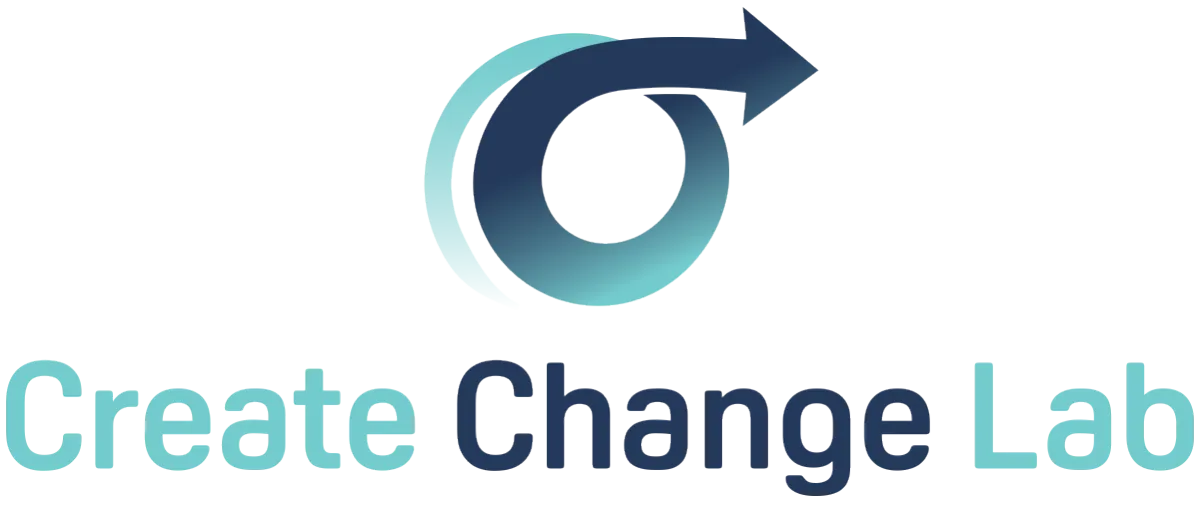About
About
When I was first diagnosed with Parkinson's Disease in the late summer of 2024, I knew that it was coming. Not only had I been experiencing symptoms for about 5 years -- lack of arm swing when walking, slowness, stumbling, lost of strength in my right arm and leg...-- but because it runs in my family: both my mother and father were diagnosed with PD in their later years, and my sister in her late 50's. I haven't tested for the marker gene, because whatever the marker is, it just represents a tendency that can be triggered or subdued by environmental and lifestyle factors. That's epigenetics, and the reason to be proactive: What I do matters.
Epigenetics is the study of how the environment and other factors can change the way that genes are expressed, beyond how the DNA is written. About 15% of Parkinson's patients have a family history of the disease, while only 5-10% are thought to have one of the genetic mutations that can predispose one to the disease (LRRK2, PARK2, PARK7, PINK1 or the SNCA gene).
The Before Times
Professionally, I work in the field of Public Health Communications (aka Behavior Change Communications or Social Marketing), and teach in the Master of Public Health program in the Larner College of Medicine at the University of Vermont. I have a doctorate in Educational Leadership and Policy Studies and a Master's degree in Media Ecology. When I trained to be a Health Coach in 2015, the background in the theories of behavior change and research-based best practices, as well as curriculum development, set me up for taking action on the epiphany I was about to have.
In 2016, I was researching a book that brought together these two interests: media and health. The focus was how the media--and advertising in particular--has created a food culture where convenience is the predominant value. In particular, I was deep into studying the tactics of Big Sugar, and how the repetition of images of kids eating sugary cereals on television has made parents and kids think that cereal is an easy and healthful breakfast -- when nothing could be farther from the truth -- when I had an epiphany in a grocery store.
I was finished with my grocery shopping and looking for a snack to eat in the car on the drive home (that's why they put the candy by the checkout!). As I was reaching for the dark chocolate peanut butter cups, I heard myself say, "You can have that, you worked out today." Now, that's something I've said to myself a hundred or a thousand times before, but since I was studying the sugar industry I was able to identify that it wasn't my rational brain talking. That's when it hit me: That's the Sugar Talking! I stood there in the middle of the market for several minutes, dumbfounded. Have I been addicted to sugar this whole time and not realized it? Are all the rationalizations and justifications for having treats consistent with other forms of addiction? How is it possible that sugar is talking to me? It was right then that I decided to change the focus of my research from advertising and policy to biology. And I was going to unravel my sugar addiction, and teach others how to do it too.
It took me two years to heal my dependency on sugar, and I created my first course Breaking Free from Sugar in 2019. To date, over 4,000 people have taken that course, with over 95% of them reporting they were successful reducing their sugar consumption and planning to continue with a sugar-minimal lifestyle. Then I wrote a book about it called The Sweet Tooth Dilemma, which became a bestseller on Amazon.
Because of that experience of healing took two years until I felt like I was on solid ground -- changing 35 years of habits, beliefs and biology doesn't happen over night -- I figure that might also be the case with PD. if I dedicate myself to learning, and experimenting with changing all the lifestyle and environmental factors within my control, that I can reverse the symptoms of Parkinsonism. And I'm giving myself two years to try (though really I won't stop trying :).
Where I am now
When I was officially diagnosed with PD in the late summer of 2024, I went through an emotionally tumultuous period, alternating self-pity and defiance. I joined the Facebook Group on Alternative Healing for Parkinson's, started following organizations and websites (see Resources tab), and generally started experimenting. I had heard that vigorous exercise was one of the only documented ways to slow the progression of the disease, so I started raising my workout game: got a Peloton bike (to use in addition to the weight training classes) and started Rock Steady, a boxing program for people with PD.
Then, in the late fall, I developed a habit of easily-triggered crying. The smallest mention or thought of having PD would send me into uncontrollable waves of tears. It felt like they were coming from my chest. Just flooded with emotions, a mix of grief, feeling sorry for myself, opportunity lost, feeling like something had been taken away from me, and even a bit of resentment -- why me, I'm so healthy?!
The months of crying came to a peak on New Year's Eve. We went out to a Talking Heads tribute band, with the youthful excitement of dancing in the New Year. Except the minute I stepped on to that dance floor, the sobbing started and barely let up for several hours. You see, I was a dancer -- not a professional dancer but a freestyle dancer, who loved to go out dancing and lose myself in the music. I used to pride myself on being able to dance to any type of music. It was a cherished form of tension release, creative expression, and often a workout too. It was the one place I could get out of my head and into my body. But on New Year's' Eve, my body was having none of it. I could barely sway to the beat let alone dance to those well-loved songs in rhythm..
I suppose that was my emotional rock-bottom, because I woke up the next morning with resolve:
- I'm not going to feel sorry for myself anymore
- I'm going to learn and do everything I can to feel the best I can
- I'm going to figure stuff out and share it with the PD community
I am sharing my journey publicly in case I actually am successful in reversing the disease there will be a record, and also to let others with PD share in my up days and down days. We need to stay resilient.
My approach is systems-based, and starts with the assumption that the rise of PD (and other neurological disorders including Alzheimer's) is not natural to ageing: it is our food, our environment, and our lifestyles are creating disease in the body. It is a functional medicine/nutrition approach that looks to address the root causes rather than merely address symptoms.
I don't have anything against addressing symptoms directly too -- I am currently taking a small dose of carbidopa/levidopa.
It is my current mission: to explore, test, and share what works.
Thanks for reading.
See Recent Posts from my Health Coaching Blogs
[PD Blog starting soon!]

I'm Not Being Strict, I'm Listening
When people see me these days—not eating refined sugar, saying no to wine (even those crisp, dry rosés of the season), or heading out for a hard workout instead of immersing myself in work or doing something for fun—they sometimes say, “Wow, you’re so disciplined.”
I usually smile, and try to say something to inspire them, but inside I just want to say: I’m not being strict, I’m listening.
On the surface, it might look like I live by rules and restriction. But the truth is, I’ve arrived at these choices after years—decades, really—of trial, error, and self-discovery. Every so-called “rule” I follow isn’t about denying myself pleasure. It’s about listening to my body, my history, and the very real feedback I get when I veer off course.
This is not about perfectionism. It’s not about punishment. It’s about momentum—building a life that helps me feel my best.
Why It Looks Strict from the Outside
Let’s be honest: when someone says they don’t eat sugar, avoid processed foods, or work out five days a week, it does sound extreme—especially in a culture where “treat yourself” is the norm.
But here’s what outsiders can’t see: the hidden cost of “normal.”
For me, eating the way most people eat doesn’t just add a few pounds or make me feel sluggish—it worsens my health issues. It ramps up inflammation, clouds my thinking, disrupts my sleep, and steals my energy and ability to focus. And once you’ve lived on both sides of that equation, the choice isn’t about being strict. It’s about survival, vitality, and self-respect.
Strictness implies rigidity, a white-knuckled adherence to rules. Listening, on the other hand, is flexible. It’s about noticing what’s happening in real time and responding with compassion.
Years of Trial and Error
I didn’t arrive at my current lifestyle overnight. It’s the result of years of experiments:
Testing out “healthy” habits that just got me so far or completely backfired. I’ve had phases of being a vegetarian (21 years!), macrobiotic, vegan, raw, runner, yogini, meditation…Some of it was motivated by principle, and some of it by trying to apply rules to reign-in uncontrolled behavior, like chronic overeating (and subsequent weight issues).
Falling off the wagon more times than I can count, and subsequent cries of frustration: “Why can’t I do this?!”
Trying to set boundaries/rules, only to rebel against them
While I like to think that each trial and setback taught me something – and it did to an extent – those were all diets or practices, the “what to eat” or “type of exercise. I had the mindset of trying to figure it out – finally! – and then I’d be all set.
But it wasn’t until I shifted the approach from “what to eat” as good/bad, right/wrong to “what to eat today, right now,” that I started learning to pay attention to how different foods, workouts, and rhythms made me feel—not just in the moment, but the next day, the next week, the next season.
“How am I eating” became as important as “what I am eating.”
Each meal became an experiment that gave me data.
Slowly, I stopped asking, “What should I be doing?” and started asking, “What actually helps me thrive?”
This shift from external rules to internal listening was the real breakthrough.
The Momentum of Feeling Good
Here’s what happens when you start listening:
You notice that the workout you almost skipped leaves you feeling strong and clear-minded all day. (And the days missed have do have less energy and mental focus.)
You realize that the “treat” food that smells amazing makes you foggy and irritable afterward.
You connect the dots between consistent sleep and a calmer mind, and lifestyle choices like exercise, food, and time outside.
And over time, these little data points build momentum.
It stops being about willpower and becomes about desire. Not the fleeting desire of “I want that cookie,” but the deeper desire of “I want to feel like my best self.”
Momentum is powerful. Once you’ve strung together enough days of clarity, energy, and strength, you’re less likely to trade it in for the short-lived hit of sugar or the temporary comfort of skipping movement.
The Myth of Deprivation
To an outsider, my choices might look like deprivation:
No sugar? Isn’t that sad?
Early bedtime? Aren’t you missing out?
Vigorous exercise? Isn’t that punishment?
But here’s the thing: real deprivation is losing my vitality, my sharpness, my joy. Real deprivation is waking up every day in a body that feels heavy, foggy, or inflamed.
Saying no to what drags me down isn’t deprivation—it’s protection. It’s investment. It’s choosing long-term satisfaction over short-term indulgence.
Listening as a Skill
Listening doesn’t come naturally at first. We live in a culture that teaches us to override signals:
Drink coffee to push through fatigue.
Take a pill for the symptom instead of asking what caused it.
Keep going until you collapse.
Learning to listen means slowing down enough to notice. It means asking:
How do I feel right now?
What did I eat, drink, or do yesterday that might be influencing today?
What choice could I make that would support me, not sabotage me?
How will I feel later if I eat or drink that?
Like any skill, it gets sharper with practice. And once you experience the rewards—more energy, steadier moods, greater clarity—you start to trust your inner compass more than the noise of the world around you.
The Reframe: Rules vs. Experiments
This is why I’ve grown wary of the word rules when it comes to health. Rules are rigid. Rules invite rebellion. Rules are someone else’s idea of what’s right for you.
[Note: There are important nutritional and biological concepts that do become critical guidelines, such as what sugar does in the body, for example, but which are also validated by personal experience.]
Experiments, on the other hand, are curious and compassionate. They say: Let’s try this and see what happens. They don’t demand perfection; they invite awareness.
When you approach your health as a series of experiments, you collect data instead of shame. You discover what truly works for your unique body. And slowly, those discoveries accumulate into a personalized way of living that feels sustainable.
Weight Loss Without Rules
This philosophy—experimenting, listening, and building momentum—is at the heart of my upcoming book and programs: Weight Loss Without Rules.
The premise is simple but radical: weight loss is not the goal. Self-understanding is. Weight loss that is attained by following someone else’s rules doesn’t equate to how to make meanifuly choices based on personal experience. Plenty of people, rather, most people, put the weight back on. That’s because they followed someone else’s rules, often with success, only to slip back into old habits.
Because if you lose the weight but don’t know how to process emotions, manage stress, or envision a new self, the weight comes right back. But if you cultivate self-awareness and self-compassion, your choices shift naturally—and your health transforms in a way that lasts.
This is not another quick fix. It’s not another list of “good” and “bad” foods (though you may build that list for yourself.
It’s an invitation to experiment with your own life, to listen deeply to your body, and to find the rhythm that helps you feel your best.
Why This Matters Now
We live in a moment where health advice is everywhere—yet sustainable health feels harder to grasp than ever. People are overwhelmed by conflicting rules: keto, vegan, intermittent fasting, low-carb, high-protein, paleo.
The result? Decision fatigue. Confusion. Guilt.
I want to offer a different path. A quieter path. A path that says: You already have the answers. You just need to learn how to listen.
An Invitation
So the next time you see me say no to dessert or head out for a workout, know this: I’m not being strict. I’m not living by someone else’s rules.
I’m listening.
And I want to invite you to do the same.
Start by noticing one small pattern this week: how a certain food affects your mood, how a walk changes your afternoon, how a bedtime ritual influences your sleep. Track it. Reflect on it. That’s your data.
Then ask: What would it look like if I lived less by rules, and more by listening?
Because the real goal isn’t to appear disciplined—it’s to build a life where choices are based on self-understanding. And listening takes practice.
If you’d like to learn more about his approach or upcoming program, please reach out.

© 2025 Create Change Lab, LLC and Andrea Grayson. All Rights Reserved,

